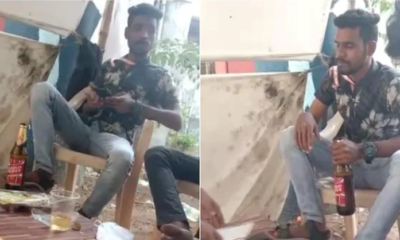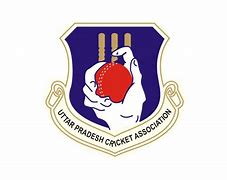Feature
Why can’t 2006 Mumbai train blast accused get books, asks HC

New Delhi: The Delhi High Court has sought to know from the central and city government why it cannot provide publications on homoeopathy free of cost in jail to a prime accused in 2006 Mumbai serial train blasts.
Justice Rajeev Shakdher asked both governments to inform about the problem in providing the free publications to the accused for study.
The court also asked the government to inform it about the status of case of Ehtesham Qutubuddin Siddiqui, lodged in a Mumbai jail.
Siddiqui had written a letter to Delhi High Court, which was converted into a PIL, seeking a direction that he be provided 45 publications on homoeopathy free of cost in jail for studying as he was too poor to afford them.
Hearing the plea, the court suggested advocate Rajdeepa Behura, who appeared for the Delhi government, that jail authorities can purchase the publications and put them in jail liberary from where the accused can study.
“What’s the problem in providing the books to accused? Jail must be having a library.. it can purchase the books and put there in library. Take instruction on the issue and also on the status of case in which accused is lodged in the jail,” asked Justice Shakdher.
One of the prime accused in the Mumbai train blasts attacks of 2006, in which seven bombs kept in first-class coaches of Mumbai’s suburban trains and at railway stations had killed 187, Siddiqui has been lodged in jail since 2006.
Siddiqui had sought copies of books published by the Central Council for Research in Homeopathy (CCRH), Delhi under the RTI act to study but the council refused on the ground that these were “priced publications” and hence could not be given free. His request for soft copies was also turned down, citing copyright laws.
After his pleas to the CCRH and the Central Information Commission were turned down, Siddiqui drafted a letter and mailed it to the Delhi High Court in April 2012.
Siddiqui argued that since he fell in the below poverty line category, a fact verified by the Bombay High Court registrar, he should be given this “information” free of cost.
He cited Section 7(5) of the RTI Act that said that even for supplying a priced publication, no fee shall be charged from people in the poor category.
Siddiqui also raised questions over invoking of copyright laws, pointing out that providing soft copies does not violate the same unless the copies are published by anyone for financial gains without their permission.
Entertainment
Meghalaya Reserves Legalized Gambling and Sports Betting for Tourists

The State Scores Extra High on Gaming-Friendly Industry Index
Meghalaya scored 92.85 out of 100 possible points in a Gaming Industry Index and proved to be India’s most gaming-friendly state following its recent profound legislation changes over the field allowing land-based and online gaming, including games of chance, under a licensing regime.
The index by the UK India Business Council (UKIBC) uses a scale of 0 to 100 to measure the level of legalisation on gambling and betting achieved by a state based on the scores over a set of seven different games – lottery, horse racing, betting on sports, poker, rummy, casino and fantasy sports
Starting from February last year, Meghalaya became the third state in India’s northeast to legalise gambling and betting after Sikkim and Nagaland. After consultations with the UKIBC, the state proceeded with the adoption of the Meghalaya Regulation of Gaming Act, 2021 and the nullification of the Meghalaya Prevention of Gambling Act, 1970. Subsequently in December, the Meghalaya Regulation of Gaming Rules, 2021 were notified and came into force.
All for the Tourists
The move to legalise and license various forms of offline and online betting and gambling in Meghalaya is aimed at boosting tourism and creating jobs, and altogether raising taxation revenues for the northeastern state. At the same time, the opportunities to bet and gamble legally will be reserved only for tourists and visitors.
“We came out with a Gaming Act and subsequently framed the Regulation of Gaming Rules, 2021. The government will accordingly issue licenses to operate games of skill and chance, both online and offline,” said James P. K. Sangma, Meghalaya State Law and Taxation Minister speaking in the capital city of Shillong. “But the legalized gambling and gaming will only be for tourists and not residents of Meghalaya,” he continued.
To be allowed to play, tourists and people visiting the state for work or business purposes will have to prove their non-resident status by presenting appropriate documents, in a process similar to a bank KYC (Know Your Customer) procedure.
Meghalaya Reaches Out to a Vast Market
With 140 millions of people in India estimated to bet regularly on sports, and a total of 370 million desi bettors around prominent sporting events, as per data from one of the latest reports by Esse N Videri, Meghalaya is set to reach out and take a piece of a vast market.
Estimates on the financial value of India’s sports betting market, combined across all types of offline channels and online sports and cricket predictions and betting platforms, speak about amounts between $130 and $150 billion (roughly between ₹9.7 and ₹11.5 lakh crore).
Andhra Pradesh, Telangana and Delhi are shown to deliver the highest number of bettors and Meghalaya can count on substantial tourists flow from their betting circles. The sports betting communities of Karnataka, Maharashtra, Uttar Pradesh and Haryana are also not to be underestimated.
Among the sports, cricket is most popular, registering 68 percent of the total bet count analyzed by Esse N Videri. Football takes second position with 11 percent of the bets, followed by betting on FIFA at 7 percent and on eCricket at 5 percent. The last position in the Top 5 of popular sports for betting in India is taken by tennis with 3 percent of the bet count.
Local Citizens will Still have Their Teer Betting
Meghalaya residents will still be permitted to participate in teer betting over arrow-shooting results. Teer is a traditional method of gambling, somewhat similar to a lottery draw, and held under the rules of the Meghalaya Regulation of the Game of Arrow Shooting and the Sale of Teer Tickets Act, 2018.
Teer includes bettors wagering on the number of arrows that reach the target which is placed about 50 meters away from a team of 20 archers positioned in a semicircle.
The archers shoot volleys of arrows at the target for ten minutes, and players place their bets choosing a number between 0 and 99 trying to guess the last two digits of the number of arrows that successfully pierce the target.
If, for example, the number of hits is 256, anyone who has bet on 56 wins an amount eight times bigger than their wager.























